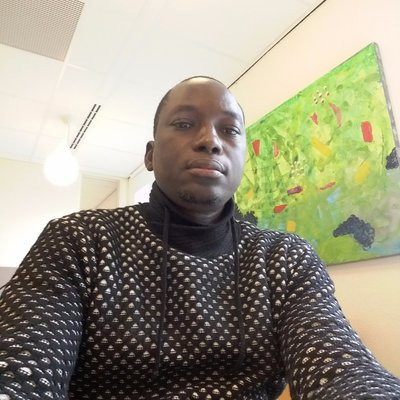Event Summary
Speakers
- Nuria Branders, Social Protection Specialist, The World Bank
- Cheikh Kane, Red Cross - Red Crescent Climate Center
- Alvina Erman, GFDRR / World Bank
- Ibrahima Fofana, Wetlands International Mali
- Moderator: Dieynaba Ndiaye, General Secretary of the Senegalese Social Protection Direction
Description
Thursday November 21, 14:00 – 15:30, Room 2
Natural disasters play an important role in preventing households from moving out of poverty and in pulling back into poverty households that were able to escape poverty. Disaster risk response is therefore an important component of poverty reduction, especially in the context of recurrent shocks. With the increased focus on fragility, transient poverty, disaster risk management and crisis response, it becomes critical to develop and improve upon methodologies for the ex-ante identification of the vulnerable to poverty.
This session has the objective to
(i) understand the concept and importance of vulnerability and how it relates to poverty and policy and
(ii) discuss how to target efforts and design interventions to address vulnerability with examples from policy and civil society
Speaker bios
Nuria Branders is a Social Protection Specialist at the World Bank based in Senegal. She works with the government to develop a shock responsive social protection system. Previous to joining the bank, she worked with several UN agencies, donor agencies and iNGos in thematics related to food insecurity, livelihoods and cash transfers.
Cheikh Kane is a researcher with IRD and currently climate resilient policy advisor at the red Cross Red Crescent Climate Center in The Hague, Netherlands. He served previously as a technical assistant for the French Ministry of Foreign Affairs seconded to ACMAD.
 Alvina Erman is an Economist at the Global Facility for Disaster Reduction and Recovery (GFDRR) at the World Bank. Since joining the World Bank in 2013, Alvina has worked in East, West and Southern Africa, South America and the Caribbean. Her research at GFDRR focuses primarily on the link between disaster risk, poverty and gender. She specializes in household and firm survey analysis. In 2019, GFDRR published the report « Lifelines – The Resilient Infrastructure Opportunity « for which she conducted analysis on the impact of infrastructure disruptions on households and firms. She holds a master’s degree in Economics.
Alvina Erman is an Economist at the Global Facility for Disaster Reduction and Recovery (GFDRR) at the World Bank. Since joining the World Bank in 2013, Alvina has worked in East, West and Southern Africa, South America and the Caribbean. Her research at GFDRR focuses primarily on the link between disaster risk, poverty and gender. She specializes in household and firm survey analysis. In 2019, GFDRR published the report « Lifelines – The Resilient Infrastructure Opportunity « for which she conducted analysis on the impact of infrastructure disruptions on households and firms. She holds a master’s degree in Economics.
 Mr.Ibrahima Sadio Fofana is a Socio-Anthropologist with a Master’s degree from the University of Bamako in Mali. Between 2004 and 2011, Mr. Fofana worked as project coordinator at ASG in partnership with World Education, Action Mopti, PADK / CTB focusing on literacy and environmental education and decentralization. He joined the large Wetlands International family in Mali in 2011, where he was project coordinator for Disaster Risk Reduction, Climate Change Adaptation, Ecosystem Management and Restoration in the Inner Niger Delta Field (DRR-CCA-EMR). From January 2016 to now, he is the Project Manager (Dialogue for Integrated Risk Management) of the Alliance Partners for Resilience (PfR). This advocacy-lobbying project strengthens civil society organizations to provide advocacy messages to strengthen their resilience to natural disasters in the Niger, Sourou and Senegal basins.
Mr.Ibrahima Sadio Fofana is a Socio-Anthropologist with a Master’s degree from the University of Bamako in Mali. Between 2004 and 2011, Mr. Fofana worked as project coordinator at ASG in partnership with World Education, Action Mopti, PADK / CTB focusing on literacy and environmental education and decentralization. He joined the large Wetlands International family in Mali in 2011, where he was project coordinator for Disaster Risk Reduction, Climate Change Adaptation, Ecosystem Management and Restoration in the Inner Niger Delta Field (DRR-CCA-EMR). From January 2016 to now, he is the Project Manager (Dialogue for Integrated Risk Management) of the Alliance Partners for Resilience (PfR). This advocacy-lobbying project strengthens civil society organizations to provide advocacy messages to strengthen their resilience to natural disasters in the Niger, Sourou and Senegal basins.
